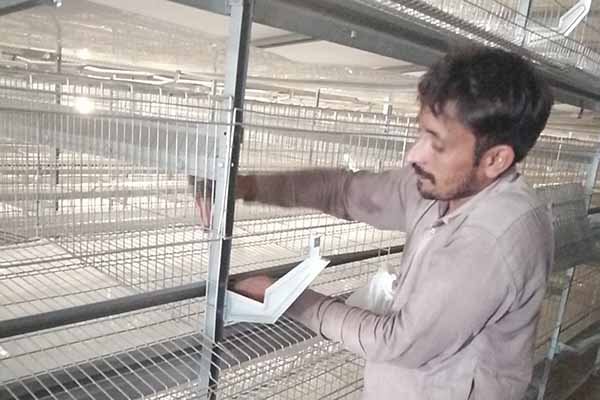Battery Cage Business Plan in Kenya: A Guide for Success
Are you planning to start a battery cage business in Kenya? As an expert in the poultry industry and a farm owner, it’s crucial to have a well-thought-out business plan. In this article, we’ll guide you through the essential steps to create a successful battery cage business plan in Kenya.
Understanding the Market
1. Market Research: Conduct thorough market research to understand the demand for battery cages in Kenya. Analyze the competition and identify potential customers.
2. Target Audience: Determine your target audience, which could include small-scale farmers, commercial poultry farms, and even individual consumers.
Business Structure
1. Legal Requirements: Ensure that your business complies with all legal requirements, including licenses and permits.
2. Location: Choose a suitable location for your business, considering factors like accessibility, transportation, and proximity to your target market.
Financial Planning
1. Budgeting: Create a detailed budget that includes costs for equipment, labor, marketing, and other operational expenses.
2. Revenue Streams: Identify various revenue streams, such as selling battery cages, providing maintenance services, or offering training and consulting.
Equipment and Suppliers
1. Quality Equipment: Invest in high-quality battery cages from reputable suppliers like livi Machinery. Our range of products is designed to meet the needs of poultry farmers in Kenya.
2. Supplier Relationships: Establish strong relationships with suppliers to ensure a steady supply of materials and equipment.
Marketing and Sales Strategy
1. Brand Building: Develop a strong brand identity that resonates with your target audience.
2. Digital Marketing: Utilize digital marketing strategies, such as social media advertising and search engine optimization, to reach a wider audience.
Operational Plan
1. Production Process: Outline the production process, from manufacturing to delivery.
2. Quality Control: Implement strict quality control measures to ensure the highest standards of your battery cages.
Training and Support
1. Staff Training: Train your staff to provide excellent customer service and technical support.
2. Customer Support: Offer reliable customer support to address any issues or inquiries promptly.
Conclusion
Starting a battery cage business in Kenya requires careful planning and execution. By following these steps and utilizing high-quality equipment from suppliers like livi Machinery, you can increase your chances of success.
Are you ready to take the next step in your poultry farming journey? Contact livi Machinery today for all your poultry equipment needs and expert support.

